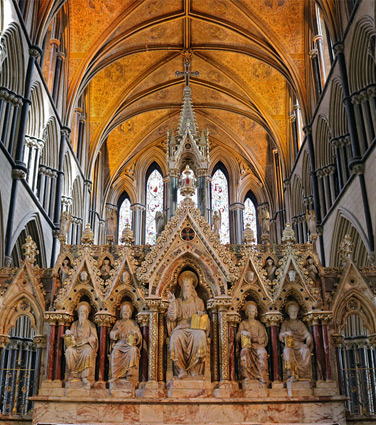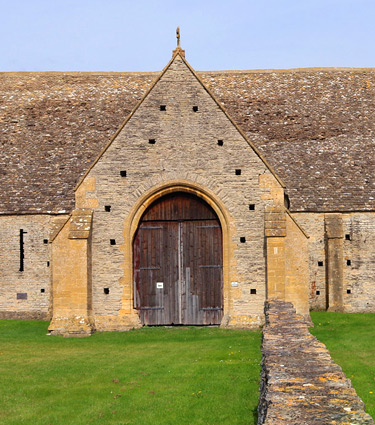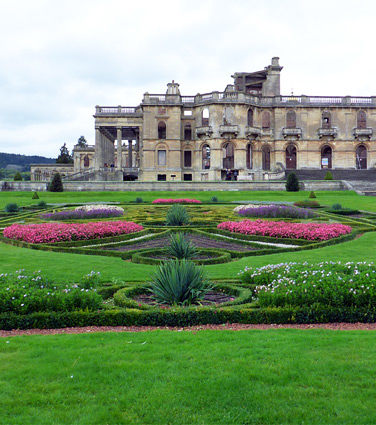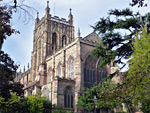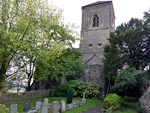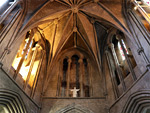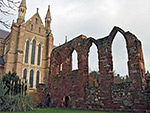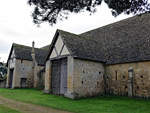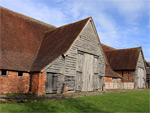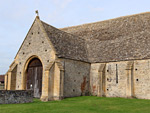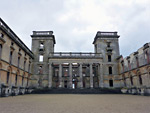The northern reaches of Worcestershire are quite developed, and partly industrial, around Kidderminster and the outer suburbs of Birmingham, but most of the land is rural. The most famous natural areas are along the borders, shared with adjacent counties; Malvern Hills in the southwest, the Cotswolds to the southeast, and the Wyre Forest in the northwest. The River Severn flows southwards right through the middle of Worcestershire, and the main city of Worcester, and is surrounded by rolling farmland and small woods, a landscape that makes up the majority of the county; there are no particularly high hills or dramatic geological features.
Unlike most English counties, Worcestershire contains no surviving castles, only several follies and castellated mansions; the few castles that were built have long been destroyed, leaving little or no trace. There are also no significant Roman sites or prehistoric relics, but the county does have many fine religious buildings, most famous being Worcester Cathedral, and a small collection of medieval barns.
Unlike most English counties, Worcestershire contains no surviving castles, only several follies and castellated mansions; the few castles that were built have long been destroyed, leaving little or no trace. There are also no significant Roman sites or prehistoric relics, but the county does have many fine religious buildings, most famous being Worcester Cathedral, and a small collection of medieval barns.
Cathedrals, and other major churchesGreat Malvern Priory Large parish church, formerly part of a Benedictine monastery, with collections of medieval stained glass and wall tiles Rating: ★★★★★ |
| Little Malvern Priory Picturesque parish church at the foot of the Malvern Hills, occupying part of a larger building from a 12th century Benedictine monastery Rating: ★★★★★ |
| Pershore Abbey Surviving section of the church from a medieval abbey, featuring intricate lierne vaulting, a huge tower and various historic artifacts Rating: ★★★★★ |
| Worcester Cathedral Typically grand and ornate cathedral, built partly in the perpendicular Gothic style. Contains the tomb of King John, and memorials to many other important people Rating: ★★★★★ |
Historic BuildingsBredon Barn Historic agricultural building using timber and Cotswold stone, little changed from the 14th century Rating: ★★★★★ |
| Leigh Court Barn Huge, 14th century cruck-framed barn, the largest building of this type in the country, and one of the oldest Rating: ★★★★★ |
| Middle Littleton Tithe Barn Substantial, timber and limestone barn from the mid 13th century, in a quiet, rural location; amongst the best preserved in the country Rating: ★★★★★ |
| Witley Court Evocative ruins of an extravagant 17th century country house, destroyed by fire in 1937. Surrounded by extensive landscaped gardens Rating: ★★★★★ |
LandscapesMalvern Hills Relatively long, tall and narrow range of hills, lying along the border with Herefordshire; an Area of Outstanding Natural Beauty Rating: ★★★★★ |
